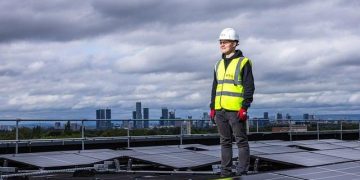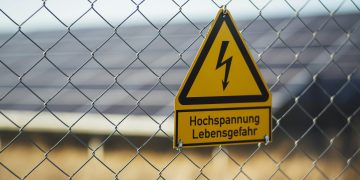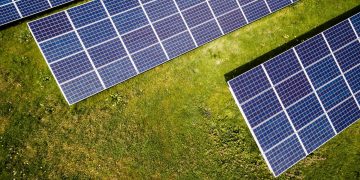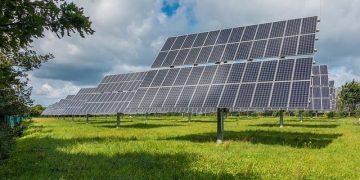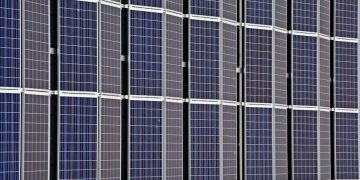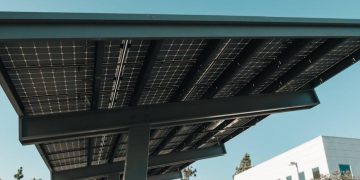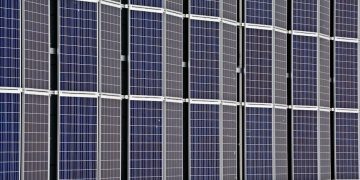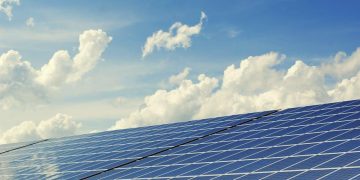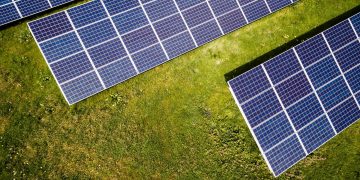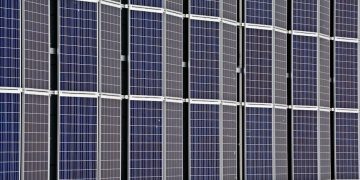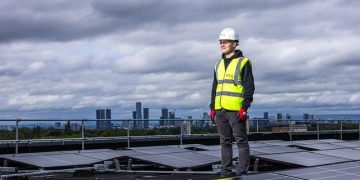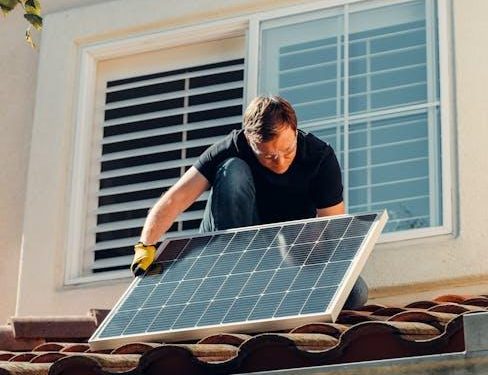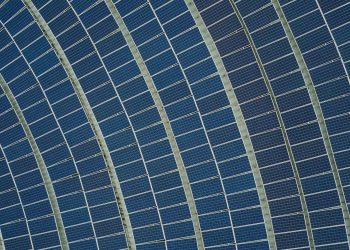In an age where the sun is not just a life-giver but also a power provider, residential solar panels have emerged as beacons of hope for a more sustainable future. Yet, as more rooftops glisten with these technological marvels, a curious question begins to cast its shadow: does the abundance of harnessed solar energy inadvertently promote overconsumption? This article delves into the paradoxical relationship between the promise of clean, renewable energy and the potential for increased energy use. As we explore this intriguing conundrum, we aim to shed light on whether the convenience of solar power is encouraging a carefree consumption culture, or if it is genuinely steering us towards a more conscientious and efficient energy future.
Harnessing the Suns Power: Balancing Efficiency and Consumption
As homeowners turn to solar panels to cut down on electricity bills and reduce their carbon footprint, a new question arises: does having access to seemingly limitless energy encourage overconsumption? While residential solar power offers a sustainable energy solution, it’s essential to strike a balance between efficiency and consumption. Solar systems are designed to maximize energy production, often leading to a surplus of energy. This abundance might tempt some homeowners to use more electricity than necessary, undermining the environmental benefits they initially sought.
To navigate this paradox, homeowners can adopt several strategies:
- Monitor Usage: Use smart meters and apps to track energy consumption patterns.
- Energy-Efficient Appliances: Invest in appliances that require less power, even when energy is abundant.
- Educate Household Members: Encourage a culture of mindfulness regarding energy use among all residents.
- Participate in Energy Buyback Programs: Sell excess energy back to the grid, incentivizing more conscious consumption.
By implementing these practices, homeowners can enjoy the benefits of solar power without falling into the trap of overconsumption, maintaining both economic and ecological integrity.
Understanding the Behavioral Impact of Solar Adoption
The adoption of residential solar panels is often hailed as a step towards sustainable living, but it brings with it a nuanced behavioral shift that deserves attention. Homeowners, buoyed by the idea of producing their own energy, may fall into a pattern of increased energy consumption. This phenomenon can be attributed to a psychological effect known as the “rebound effect,” where the perceived abundance of renewable energy sources leads to less stringent energy-saving behaviors. The transition from conventional energy sources to solar can inadvertently encourage the use of more electronic devices, larger appliances, or simply less mindfulness about turning off lights and gadgets when not in use.
- Perception of limitless energy: Solar panel owners might believe they have an inexhaustible energy supply, leading to relaxed conservation habits.
- Cost savings misconception: While solar energy reduces electricity bills, the initial perception of savings might prompt some to use more energy.
- Lack of real-time feedback: Without systems in place to monitor consumption versus production, homeowners may not realize their increased usage.
However, the solution isn’t to shy away from solar adoption but to enhance it with smart energy management systems. By integrating technology that provides real-time feedback and incentivizes conservation, homeowners can maximize the environmental benefits of their solar investments. Encouraging education and awareness about sustainable energy use remains pivotal in ensuring that the transition to solar energy remains truly beneficial for both the individual and the environment.

Evaluating Energy Savings versus Increased Usage in Solar Homes
In the pursuit of sustainable living, homeowners have increasingly turned to solar panels to harness renewable energy. While the environmental benefits and potential for cost savings are undeniable, there’s a curious paradox at play. Do solar homes inadvertently lead to increased energy consumption? This phenomenon, sometimes referred to as the “rebound effect,” suggests that as homeowners perceive energy as more affordable and sustainable, they might use more of it. This can manifest in various ways:
- Increased Appliance Usage: Homeowners might feel more inclined to run energy-intensive appliances, like air conditioners and electric heaters, for longer periods.
- Adding New Devices: With reduced energy costs, there’s often less hesitation to invest in new gadgets and electronics, further escalating energy usage.
- Behavioral Shifts: A psychological comfort in knowing that energy is self-generated might lead to less diligent energy-saving habits.
While these trends are not universal, they underscore the need for continued energy-conscious behavior, even in solar-powered homes. Encouragingly, many solar users remain committed to energy efficiency, coupling their systems with smart technologies and storage solutions to optimize both consumption and savings.

Strategic Solutions for Sustainable Solar Energy Utilization
In navigating the complex landscape of residential solar energy, strategic solutions are essential to foster a more sustainable approach. While solar installations are on the rise, addressing potential pitfalls such as energy overconsumption becomes crucial. Balancing energy use with generation capabilities can be achieved through a variety of methods, ensuring that solar power remains a viable and responsible choice for homeowners.
- Smart Energy Management Systems: Integrating intelligent systems that monitor and optimize energy use can prevent excessive consumption, aligning usage with periods of high solar generation.
- Incentivizing Efficient Appliances: Encouraging the use of energy-efficient appliances can drastically reduce unnecessary power consumption, maximizing the benefits of solar installations.
- Dynamic Pricing Models: Implementing flexible pricing strategies can incentivize homeowners to shift energy-intensive activities to times when solar production is at its peak.
Education and Awareness also play a pivotal role. By promoting a deeper understanding of energy dynamics, homeowners can be more conscious of their consumption patterns. This knowledge empowers individuals to make informed decisions, ultimately supporting a more sustainable and balanced energy ecosystem.
In Retrospect
In the dynamic interplay between innovation and consumption, residential solar power stands as a beacon of potential and paradox. As we peel back the layers of this energy evolution, it becomes clear that the journey is as complex as it is promising. The sun, with its inexhaustible generosity, offers a path to cleaner energy, yet it also invites us to reconsider our habits and responsibilities.
In this dance of shadows and light, the question remains: can we harness the sun’s power without losing sight of sustainability? As we step forward, let us be mindful architects of our energy future, balancing the allure of abundance with the imperative of conservation. The solar panels on our rooftops may capture the sun’s rays, but it is our choices that will truly shape the horizon.

